Partly due to his old age and partly due to the bombs and bullets he experienced during the war, Mr. Lap's hearing is a bit hard, and it was very difficult, and many times it took his wife's help to explain, for the group of reporters to piece together the information into the story of his life, since 1960.
“Just me”
With the memory of a nearly 90-year-old man, Mr. Lap said that he joined the resistance army with a memorable milestone: January 1, 1960. Nine years since joining the revolution, Mr. Lap remembers the year 1969 the most. According to his memory, at this time he was present in a unit called Regiment 170 of the Region.
He said that in 1968–1969, there were two events he could never forget: President Ho Chi Minh passed away and his unit sacrificed a lot in the 1968 Spring General Offensive and Uprising. “The battle was fierce. At that time, after several days of fighting, my platoon had only four survivors. The situation was getting worse, and a pessimistic mood emerged.
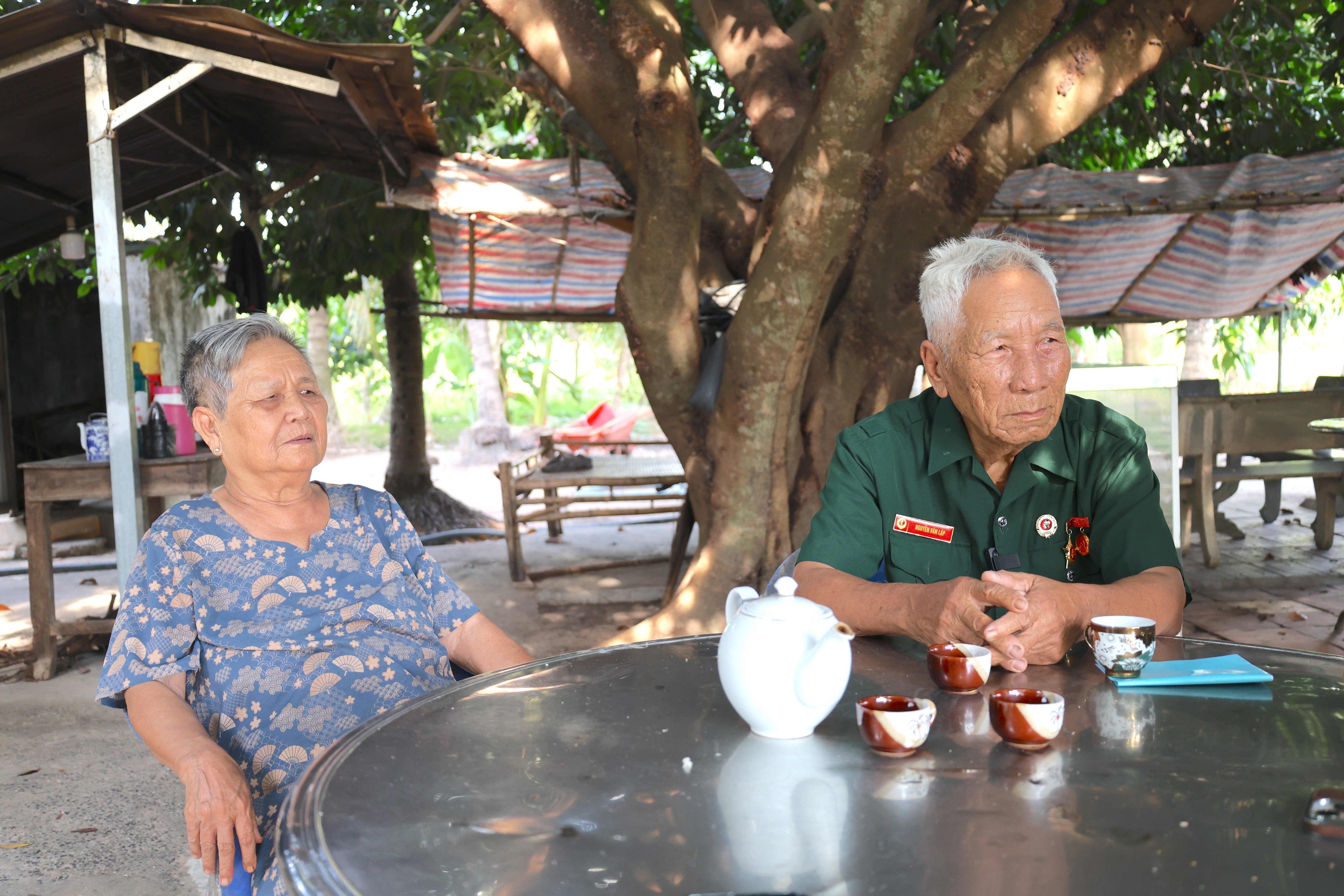
As I said, our group was down to four people, but a few days later, three of us couldn’t stand the bombs and bullets anymore. The three of us told me, “We can’t stand it anymore. We can go without food, but we can’t go without drinking. We’re going.” After saying that, all three of us left. Where they went, I don’t know. We were supposed to be a unit, a fighting group, but now I’m the only one left.
Some time later, I went to study special forces. From a soldier to a company officer, I participated in many fierce battles. I told today's generation how fierce the war was, not "reporting achievements or merits". To this day, I still remember the Junction City sweep right on this land of Tay Ninh. That day, I entered the battle at five o'clock in the morning. During the fight, I was wounded in my left arm.
That day, the enemy mobilized a series of planes to bomb fiercely. Bombs were scattered from the Vam Co Dong River to Lo Go, circled up to Xa Mat and then across Dong Rum. After scattering bombs, enemy artillery fired like rain. Their tanks and armored vehicles moved in droves in the fields, true to the nature of a sweep. In combat position, I just waited for the enemy vehicles to enter the target and fired. I must say that sweep was extremely fierce. After that battle, I knew I was still alive.”
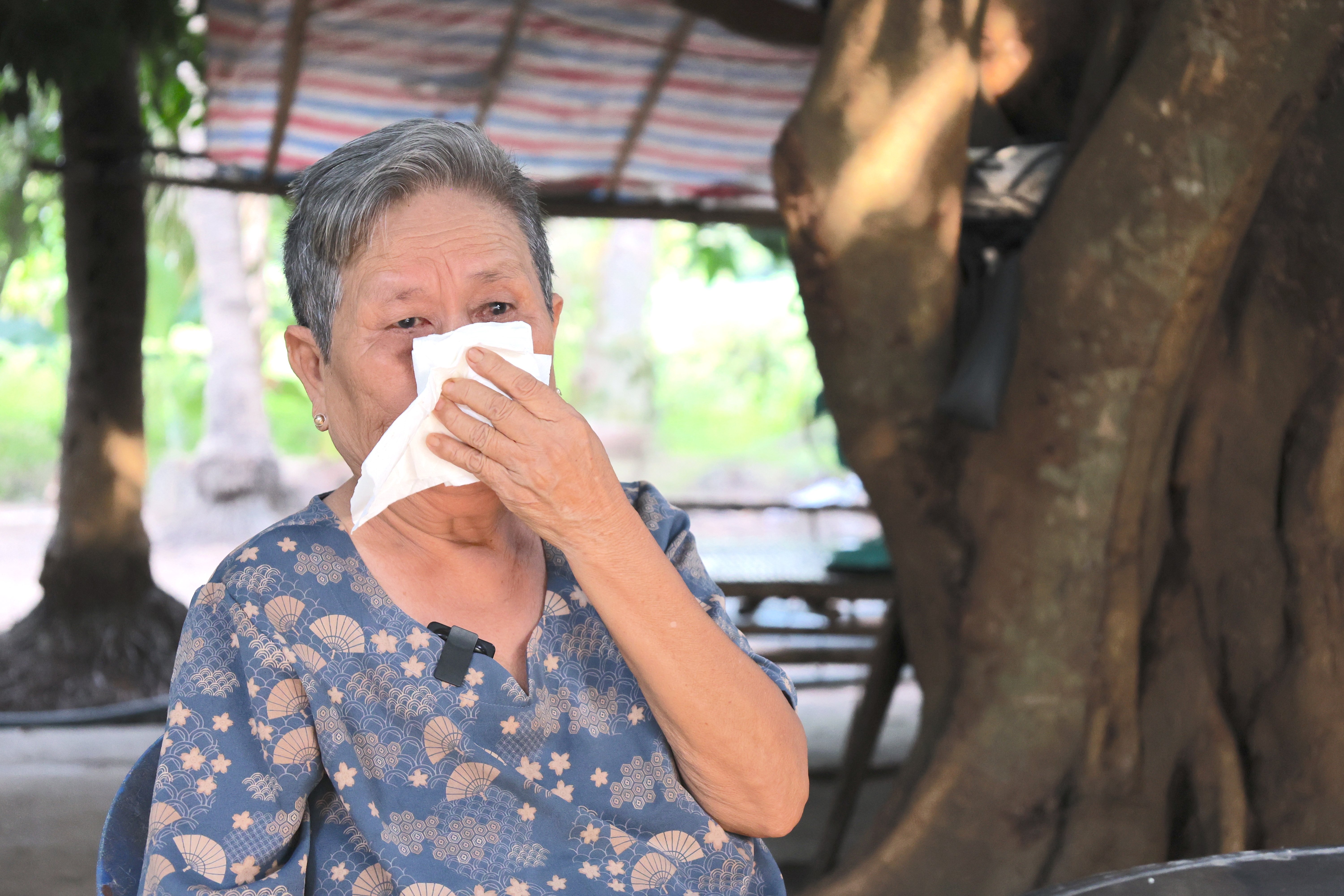
During the days shrouded in the flames of war, what did he wish for most? “I just wished for peace, no more bombs falling and bullets exploding, and the enemy no longer letting me roll around on the street… to sleep. Peaceful sleep right in my hometown Tay Ninh, I wish for nothing more. During the war years, I was part of many different units. I know that about two thousand of my comrades in those units sacrificed themselves, most of them fell in the Mau Than 1968 battle.
Today, sitting here, in this historic April afternoon, at an age close to death, I think I am lucky to have returned after the war. I believe that I have fulfilled my duty, responsibility, and obligation as a young man when the Fatherland calls. I hope that future generations will try to follow the example of their ancestors and know how to protect the country.
The girl "Eighteen villages of betel gardens"
Just like the story of Mr. Trinh Minh Tan and Mrs. Nguyen Thi La in the first article of this series, during the war, there were stories that were both beautiful and painful. During his time fighting to liberate his homeland, soldier Nguyen Van Lap met a girl named Nguyen Thi Sang, from Hoc Mon, Ho Chi Minh City. 5 years younger than her husband, Mrs. Sang turned 80 this year. Mrs. Sang was the one who “interpreted” for the group of reporters when we talked to her husband. But it was also interesting, through which we learned that she had spent a long time participating in the resistance war in her hometown of “Eighteen betel gardens” – Hoc Mon, Ho Chi Minh City.
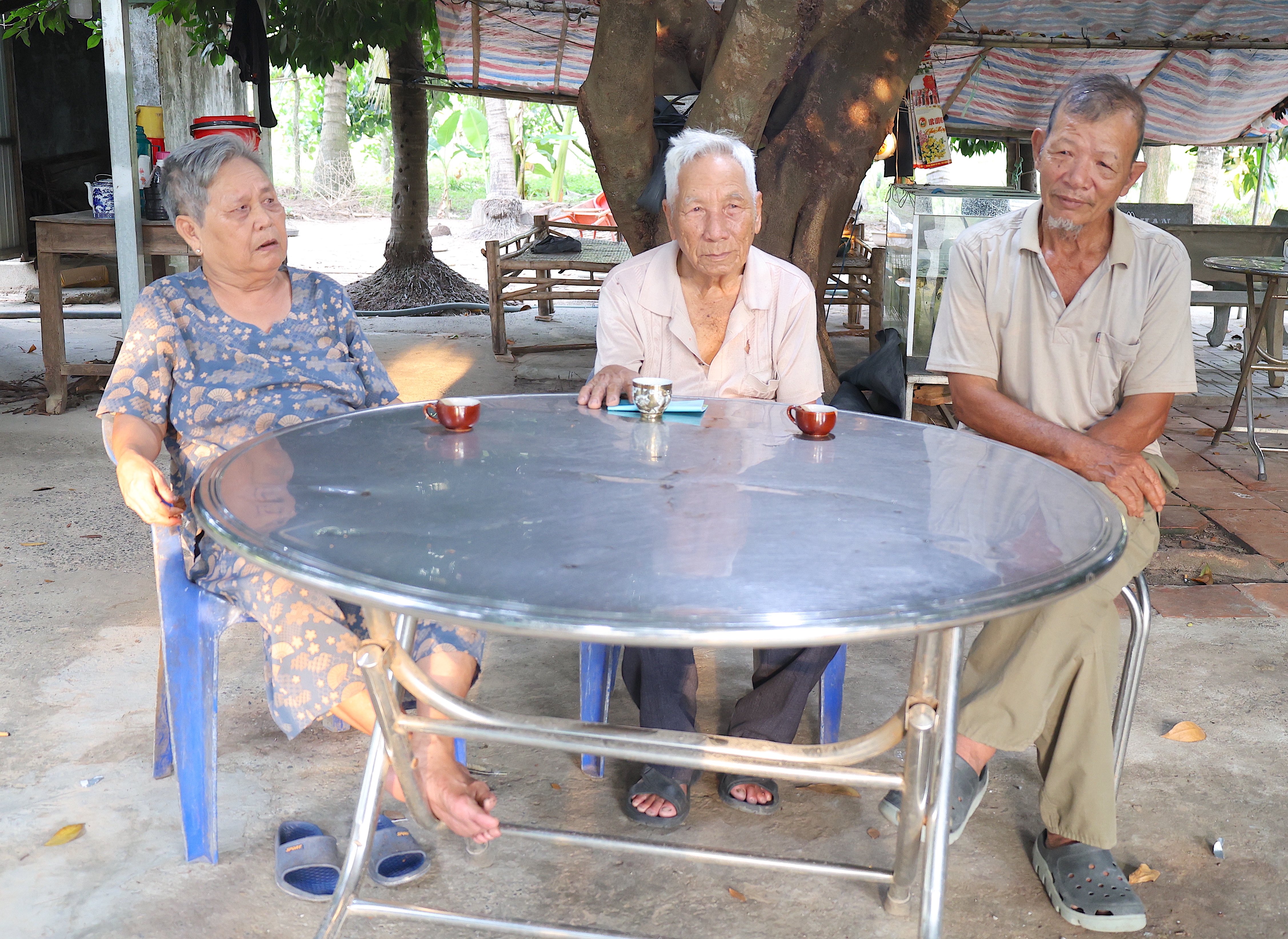
At 80 years old but still sharp, Mrs. Sang said that her family, siblings, including the generation of children and grandchildren in Hoc Mon at that time, dozens of people participated in the revolution. She had a brother and a sister who sacrificed their lives in the resistance war against the US to save the country. Mrs. Sang joined the revolution (secret activities) when she was seventeen years old.
“During my time in secret operations, at the age of seventeen, still young, I easily deceived the enemy, serving the people and soldiers in the “iron triangle” area. But unexpectedly, my identity was exposed by a female comrade of mine. This person did not betray me. She had a husband. Her husband, on the surface, worked for us, but we could not have imagined that he was an enemy agent infiltrating our ranks.
My friend and I were in the same unit, so what I knew about him, he also knew about me. Perhaps even my friend could not have imagined that her husband was a spy working for the enemy. Exposed and at risk of being arrested, my mother sent me to work in the inner city (Saigon) because my family had relatives there, which was also a revolutionary base" - Mrs. Sang slowly recalled her youth when she participated in the revolution.
Some time later, when the situation changed in our favor, the mother found a way to bring her daughter back to work in the Hoc Mon and Cu Chi areas. “Those years were so difficult that I can’t even describe them. But I was determined to fight, to fight to the end to help drive out the enemy. When my mother brought me back from the inner city, I told her, I will fight until I see you again at my home in peace and unity,” Ms. Sang recalled.
When the group of reporters asked about joining the revolution at a very young age, and being a woman, did she have anything to say about her female comrades? Ms. Sang said: “The hardships and sacrifices of war are beyond words. But for women, we have our own difficulties and hardships. Some of our female comrades unfortunately fell into the hands of the enemy. What happened next is not difficult to guess.”
Before saying goodbye to the group of reporters, Mrs. Sang poured a cup of tea and drank it. She said that in her entire life, from her youth until now, at the age of 80, she has never eaten or drunk anything containing stimulants. But “meeting you two today, I am so happy, I have to drink a cup of tea”!
“I crawled a few more meters, my back was bleeding less.”
On an April afternoon, while the group of reporters were "extracting information" from Mr. Lap and Mrs. Sang, a man rode his bicycle past their house. Knowing what was going on, this man silently listened to the conversation between the guest and the host. Judging from his appearance, we guessed that this man was only about sixty years old. The conversation we had with this man later surprised us: he was 78 years old, a former special forces soldier, his name was Do Van Sau.
When we explained the reason and purpose of the meeting, the 78-year-old man, who looked very young, suddenly burst into tears and only said a short sentence, "Stop talking, it hurts." Understanding the "urgency" of the group of reporters, he said that his hometown was Ha Tay (now Hanoi), along with many young people from the North, they left school in the season of cicadas chirping and phoenix flowers blooming.
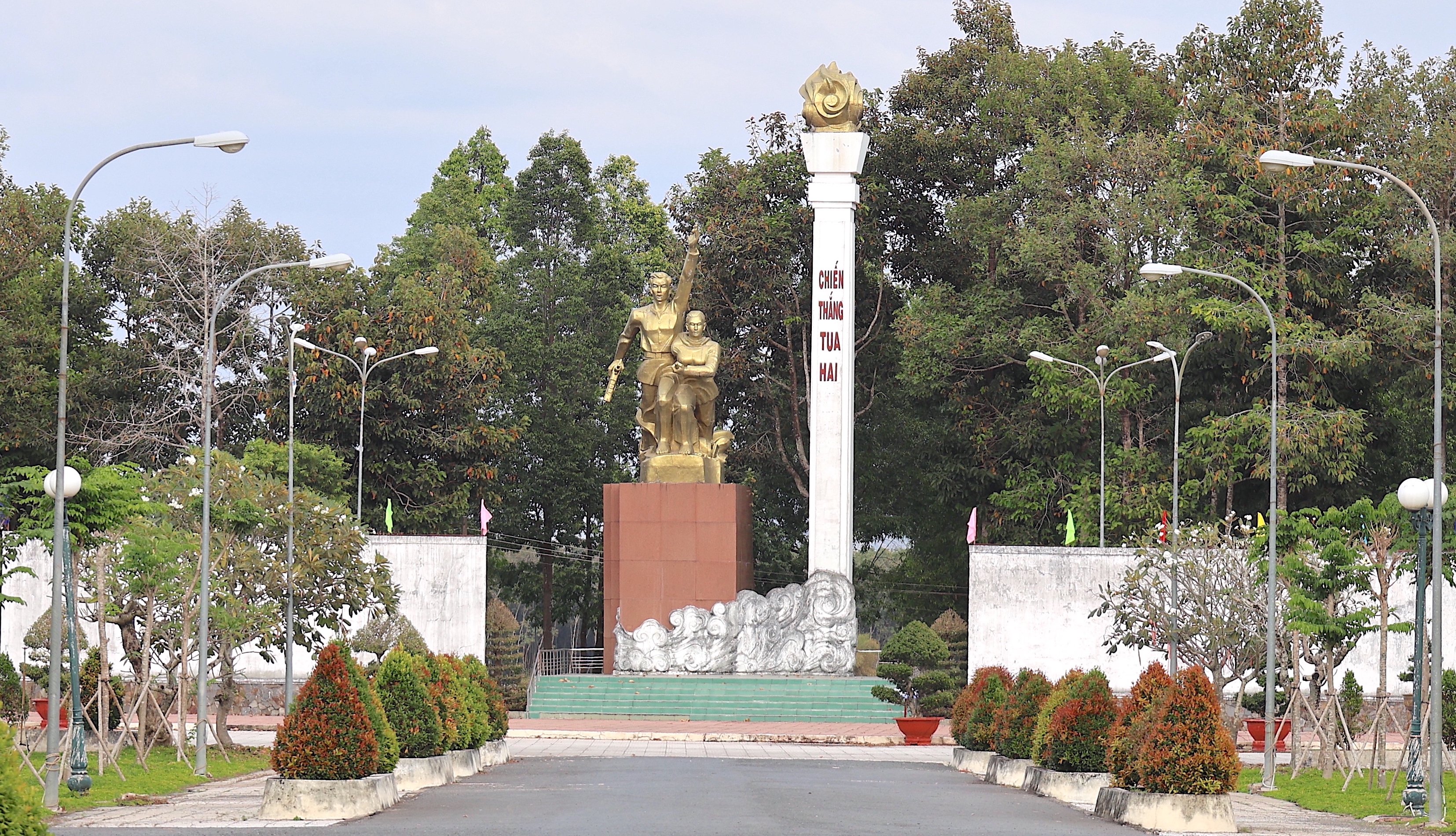
“Three months after our departure, our unit arrived in Phuoc Long (present-day Binh Phuoc) and went into battle. Before reaching Phuoc Long, along the way, there were often food shortages, so the locals and ethnic minorities boiled cassava for us to eat. When we set out, because we were a special forces force, we marched lightly.
I remember, at that time we were told that we would march into the South along two “lines”: one line from our friendly country and one line from the Liberation Army of South Vietnam. Due to the nature and location of the battle, special forces and reconnaissance troops always went first to clear the way. We had to crawl and cut through many layers of barbed wire of the enemy fortifications. There was a comrade who completed the mission and was ordered to withdraw but reported to the commander, “Let me crawl a few more meters, so that when we open fire, the soldiers will bleed less” – Mr. Sau said.
Viet Dong - Hoang Yen
(to be continued)
Source: https://baotayninh.vn/bai-2-chien-dau-de-gap-lai-me-trong-hoa-binh--a189193.html


![[Photo] Prime Minister Pham Minh Chinh chairs the fourth meeting of the Steering Committee for Eliminating Temporary and Dilapidated Houses](https://vphoto.vietnam.vn/thumb/1200x675/vietnam/resource/IMAGE/2025/5/11/e64c18fd03984747ba213053c9bf5c5a)

![[Photo] National Assembly Chairman works with leaders of Can Tho city, Hau Giang and Soc Trang provinces](https://vphoto.vietnam.vn/thumb/1200x675/vietnam/resource/IMAGE/2025/5/11/c40b0aead4bd43c8ba1f48d2de40720e)
![[Photo] The moment Harry Kane lifted the Bundesliga trophy for the first time](https://vphoto.vietnam.vn/thumb/1200x675/vietnam/resource/IMAGE/2025/5/11/68e4a433c079457b9e84dd4b9fa694fe)
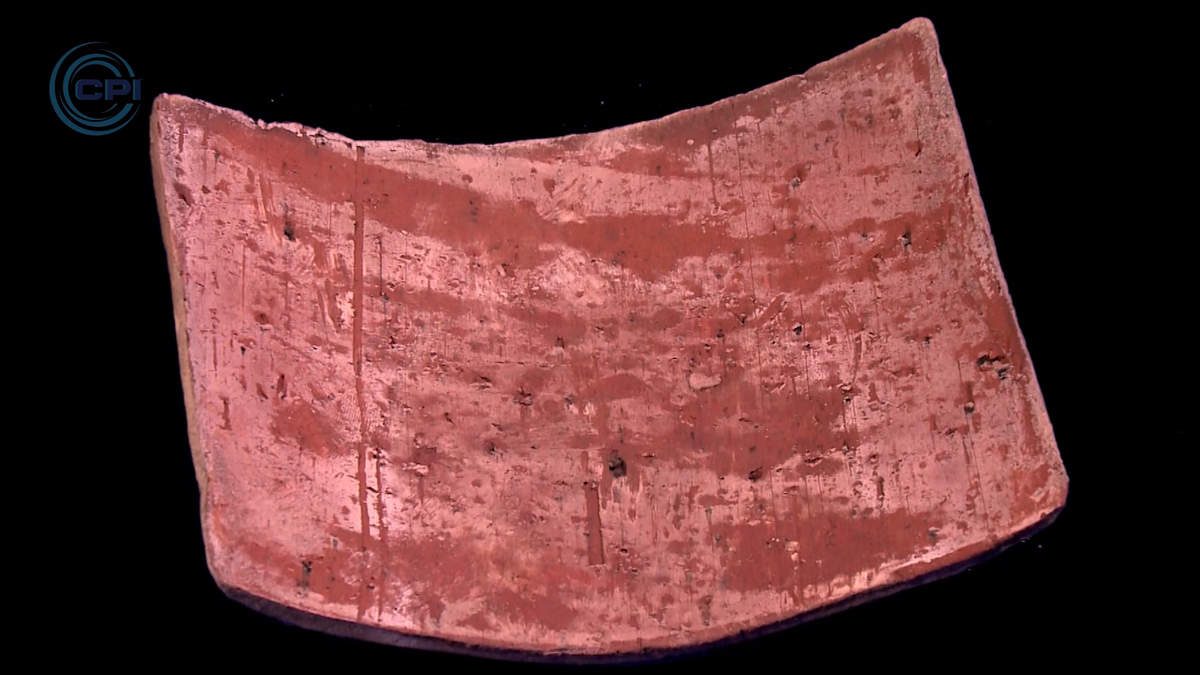
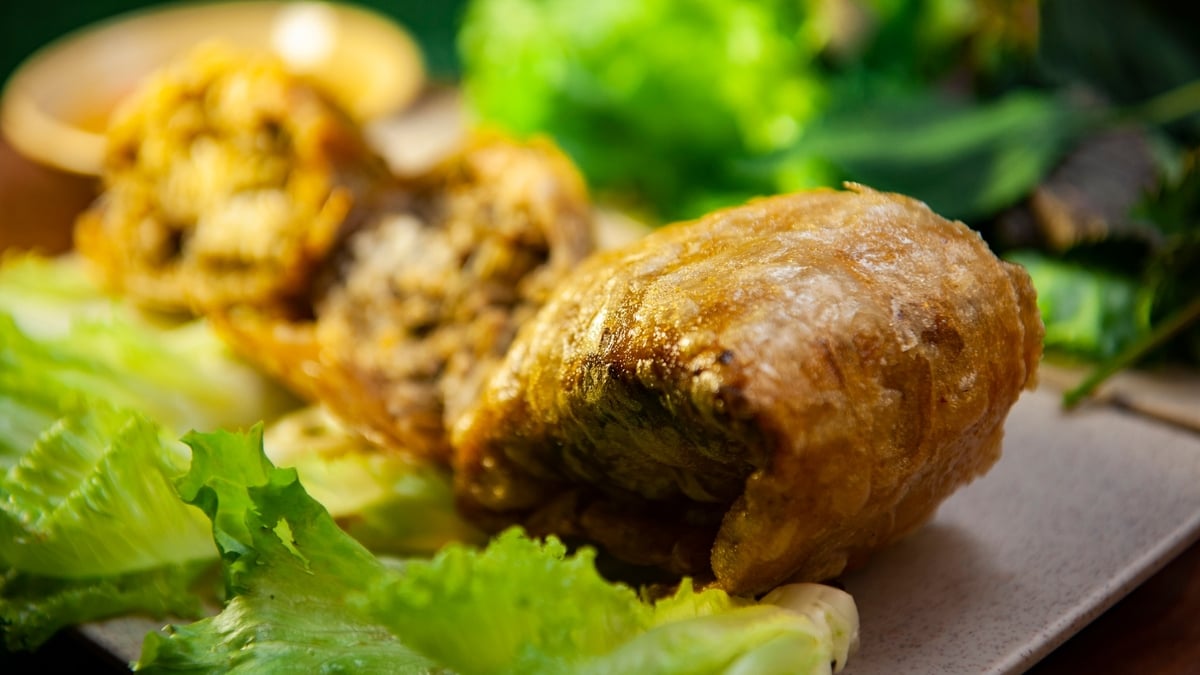





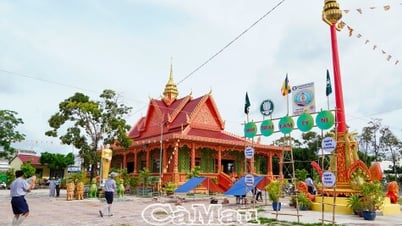






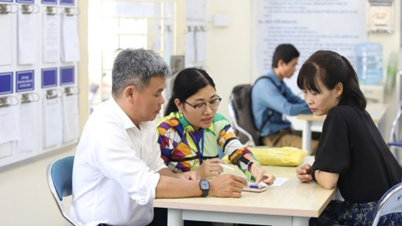

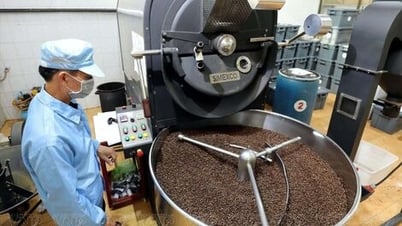
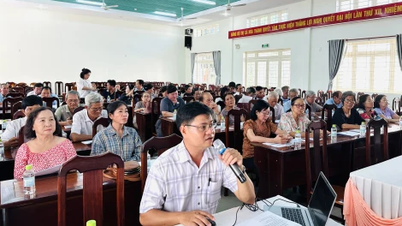

































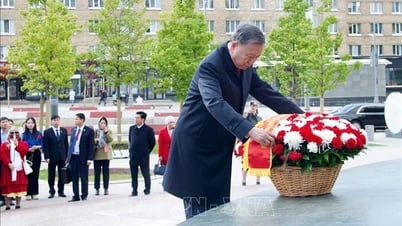



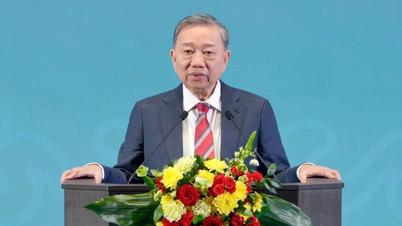



















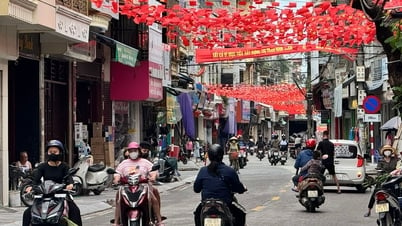

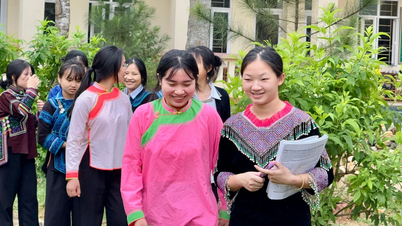










Comment (0)